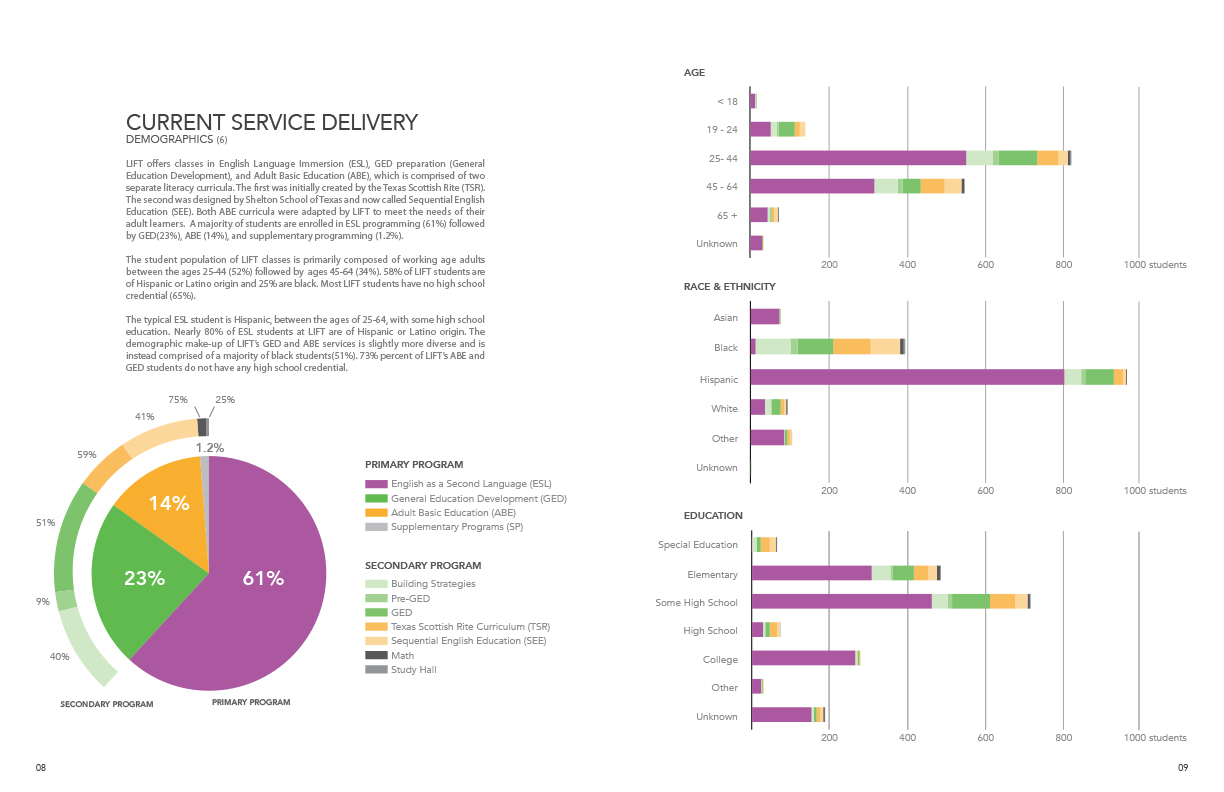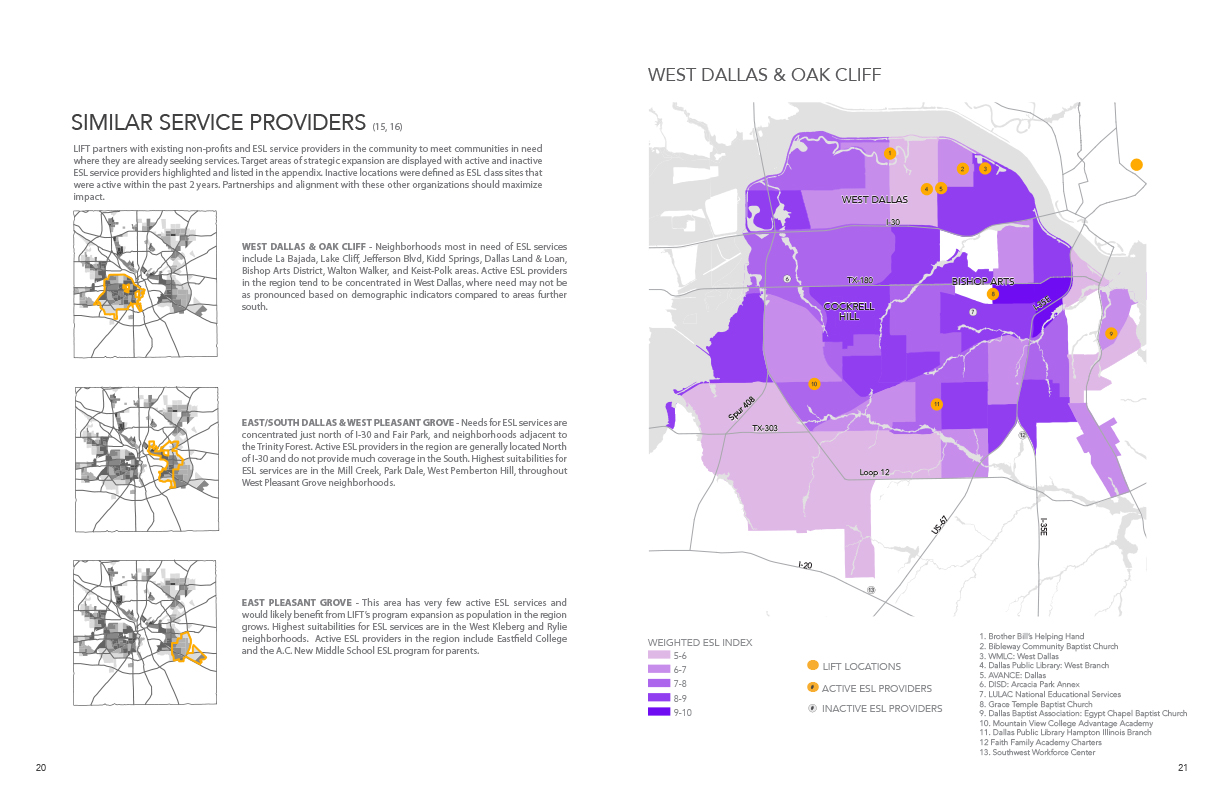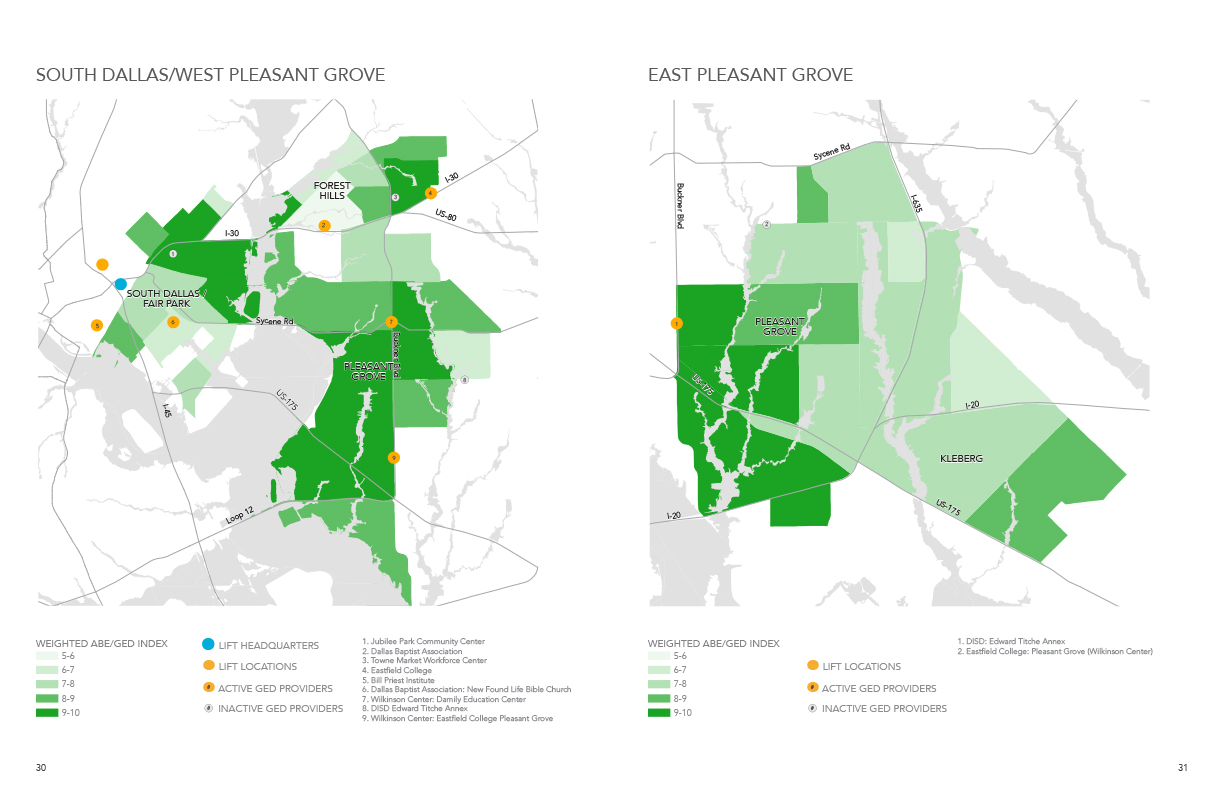We are publishing a collection of reports and documents prepared by bcANALYTICS to help nonprofit and community-based organizations serve their clients and communities through data-driven research and analysis. Check out more bcANALYTICS reports here.
EXECUTIVE SUMMARY
Through research and analysis, [bc] has mapped and profiled Literacy Instruction for Texas’ (LIFT) current service delivery and identified key demographic factors commonly associated with low literacy populations. This report offers recommendations to guide LIFT’s potential expansion in Dallas County.
Currently, LIFT, has 14 outreach locations around the Dallas/Fort Worth area that serve approximately 3,313 individuals, ages 18 to 90, through its various programs. LIFT has served the region for over 50 years.
While much research has been done on childhood literacy, low literacy among adults is largely unstudied. Indicators commonly associated with low literacy rates among adults include poverty, English proficiency, race, ethnicity, immigration, and unemployment. In this study, estimate data from the American Community Survey were used to identify geographies with a prevalence of adult literacy indicators and risk factors. In Dallas County, these include neighborhoods in South Oak Cliff, near Fair Park, and Pleasant Grove. It is recommended that explorations for service expansion start in these neighborhoods.
Social service and ESL adult education providers in and near identified neighborhoods are located and listed. Examples of these include primary and secondary schools with higher prevalence of ESL students, workforce centers, churches, and libraries. It is also recommended that literacy outreach efforts begin at community centers already integrated and engaged within the community. Partnerships and alignment with other organizations should maximize impact in areas with the highest need.
Below is an excerpt from the LIFT report. Read the full report here!
THIS WORK IS SUPPORTED BY
As the largest community foundation in Texas and one of the largest in the nation, Communities Foundation of Texas (CFT) works with families, companies and nonprofits to strengthen our community through a variety of charitable funds and strategic grantmaking initiatives. The foundation professionally manages more than 900 charitable funds and has awarded more than $1.3 billion in grants since its founding in 1953. Increasing financial stability of working families is one of the two key focus areas of CFT’s community impact funds. To support this area, CFT has launched the Data Driven Decision-Making (D3) Institute. The D3 Institute is designed to provide organizations that offer programs and services for low-income working families the power to accelerate their development of enduring solutions to the social and economic problems facing this population. www.cftexas.org/D3
![[bc]](http://images.squarespace-cdn.com/content/v1/5248ebd5e4b0240948a6ceff/1412268209242-TTW0GOFNZPDW9PV7QFXD/bcW_square+big.jpg?format=1000w)


























